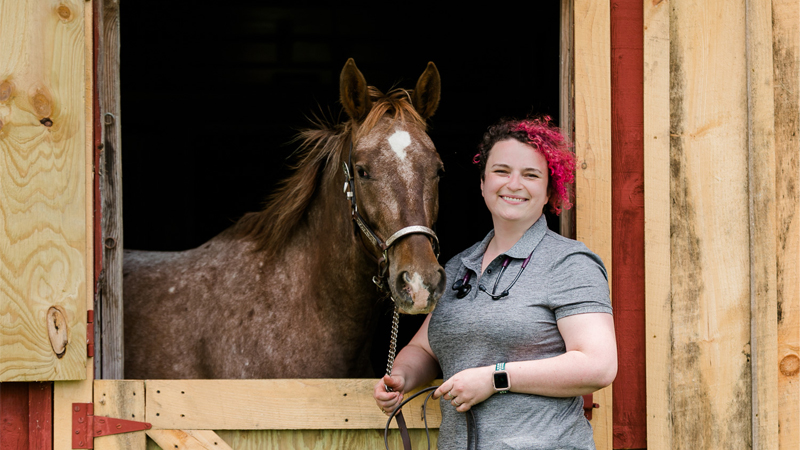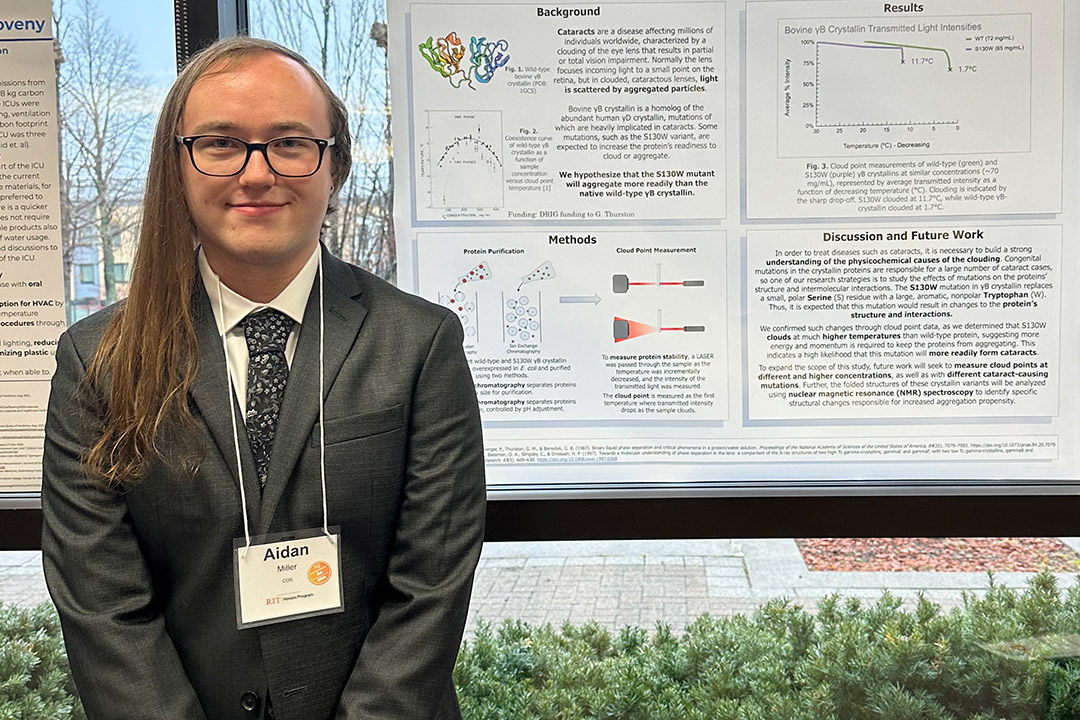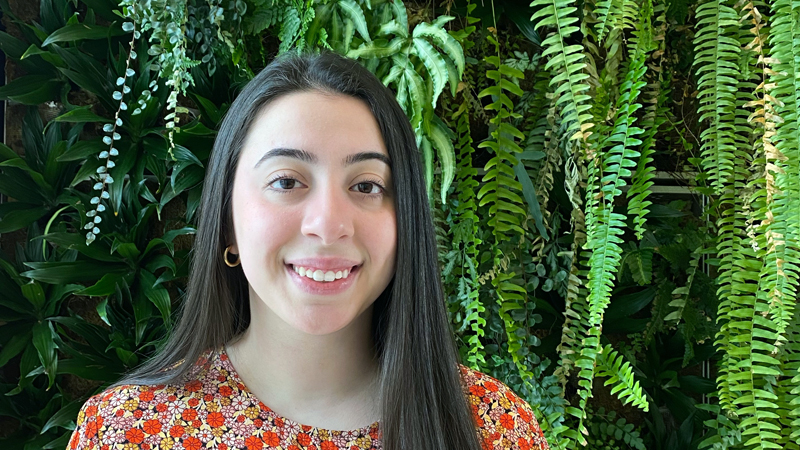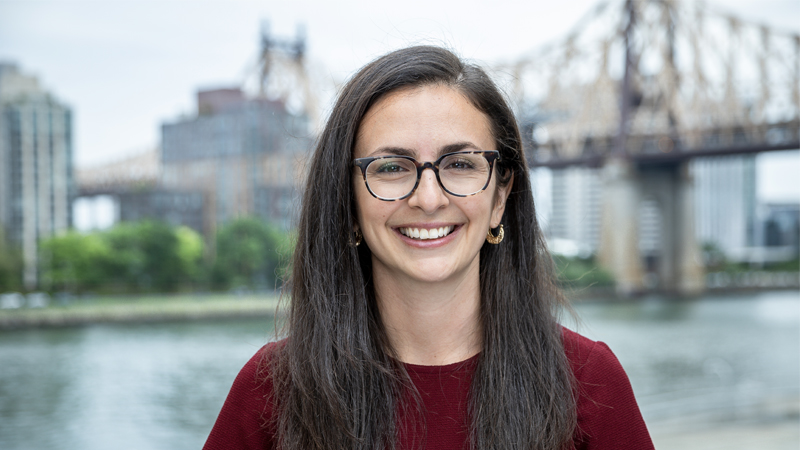Biology: The Intersection of Discovery, Ethics, Equity and Wellness
Dr. Mark Cicero ’97 leveraged his degree in Biology to pursue a career in medicine, research, education, training, and advocacy.
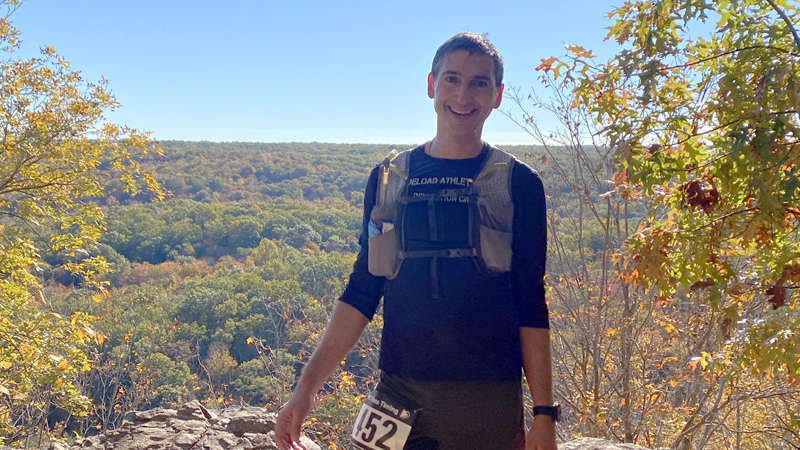
Mark Cicero ’97 enrolled in the Biology BS program in the 1990s when the RIT Pre-Med and Pre-Vet programs were relatively small. Even so, the support from faculty, emphasis on critical thinking skills, and hands-on experiences in patient care prepared him for a diverse career. Today, Mark is a physician in the Yale New Haven Children’s Hospital pediatric emergency department, where he cares for young people from birth to early adulthood.
Mark was inspired to study biology thanks to a high school biology teacher. He knew his goal was to become a physician. After completing college tours, he saw that RIT’s College of Science was committed to the personal mentorship and guidance needed to help college students through the med school application process. This, plus the opportunity for a rich, well-rounded education, made him choose RIT.
During his time at RIT, Mark was mentored by Dr. Jeff Lodge and Dr. Douglas Merrill. Mark worked in Dr. Lodge's research lab, where he learned the importance of keeping the goal in sight while taking some fun side quests along the way. Mark even brewed beer for the first time in Dr. Lodge's lab, and decades later, he’s still brewing. Dr. Merrill was the Pre-Med Advisor and a formative mentor for Mark, providing pivotal guidance that helped launch Mark’s career.
Mark also secured a co-op while at RIT, working as a certified nursing assistant in a busy nursing home. Mark and the other Certified Nursing Assistants (CNAs) were responsible for the day-to-day care of dozens of ill, older adults. This experience taught Mark a lot of practical knowledge and skills about bedside care and how to be more patient and kind. He also began to value his own health in a new way. This experience inspired him to pursue pediatrics where the care focus is on prevention and maximizing health. The combination of critical-thinking training and hands-on patient care during undergrad served Mark well in medical school and beyond.
“RIT’s combination of world-class laboratories, close academic instruction, and that challenging co-op gave me advantages compared to medical students who'd had more traditional undergraduate experiences.”
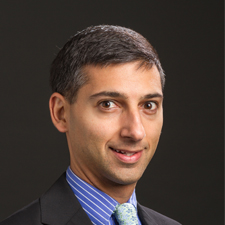 As a pediatric emergency physician, Mark sees 30-35 patients in the emergency department during each of his two shifts per week while also supervising and teaching resident physicians and medical students. These patients have a full range of medical, emotional/mental health and traumatic issues. Mark is also an associate medical director for the Emergency Pediatrics Course of the National Association of EMS Physicians. He regularly conducts educational simulations for paramedics and EMTs that provide insights about improving the prehospital care of children. The variety, opportunities to help, and the bright, hardworking team he works with makes his job incredibly satisfying.
As a pediatric emergency physician, Mark sees 30-35 patients in the emergency department during each of his two shifts per week while also supervising and teaching resident physicians and medical students. These patients have a full range of medical, emotional/mental health and traumatic issues. Mark is also an associate medical director for the Emergency Pediatrics Course of the National Association of EMS Physicians. He regularly conducts educational simulations for paramedics and EMTs that provide insights about improving the prehospital care of children. The variety, opportunities to help, and the bright, hardworking team he works with makes his job incredibly satisfying.
Mark is also active academically. He’s an associate professor of pediatrics and emergency medicine at the Yale School of Medicine. Mark leads a grant-funded research project called Pediatric Emergency Care Coordination in EMS Agencies: Measuring the Influence, Magnifying the Improvement. His research examines how children are treated during disasters and includes publications about disaster medicine educational strategies.
“Small and large scale disasters over the last 20 years have included disease outbreaks, terrorist attacks, and gun violence. This has shown me that we need to do a better job caring for kids in disasters.”
Given the recent pandemic, Mark’s work in pediatric emergency care has expanded. He now co-leads education and knowledge dissemination for the federally-funded national Pediatric Pandemic Network. Launched in 2021, the Pediatric Pandemic Network aims to empower healthcare systems and communities across the nation to provide high-quality, equitable care to children daily and in crises. Mark is also a member of the federally appointed National Advisory Committee on Children and Disasters. This committee advises the Secretary of the U.S. Department of Health and Human Services (HHS) on children’s medical and public health needs during disasters. Mark personally participates in 10-15 meetings per week that focus on improving emergency medical services care or disaster readiness for children.
The most important skills for the kind of work Mark does are flexibility, compassion, and time management. This is true when working in direct patient care, leading a team of researchers, or advising a mentee. In addition, Mark recommends that students learn how to access information quickly and write well enough to express what their research shows, what is significant about the results, and how it can improve the emergency care of patients.
“Biology and life sciences are right at the intersection of scientific discovery, ethics, equity and wellness.”
According to Mark, high school students who want to pursue a life sciences discipline would benefit from finding a good mentor who is a few years ahead of them and another mentor who is established in the field. Throughout a career in the life sciences, remembering to ask "why?", "so what?" and "what's next?" This will help a person focus and remain excited about learning, teaching, and caring.





